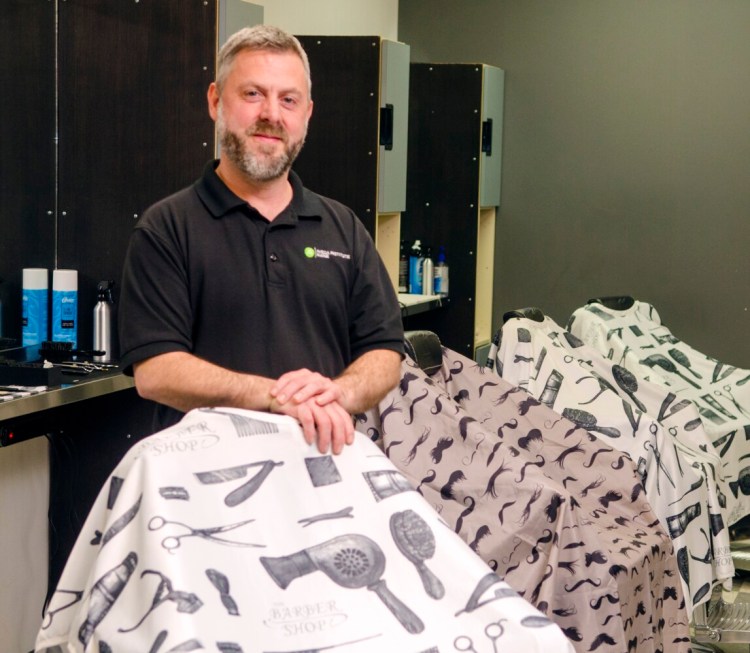Required barber licensing tests in Maine will be available in 10 more languages, including Arabic, by the end of this year.
The change comes after the Kennebec Journal reported last month that Arabic-speaking barber students who studied at the Aveda Institute in Augusta were experiencing difficulties obtaining state-issued licenses because exams were not offered in their native language. Arabic-language tests could be available as soon as June.

Mohammad Abdalnabi, 19, of Augusta, who recently graduated from Aveda Institute and passed the barber licensing exam, speaks Jan. 24 at the institute in Augusta. Kennebec Journal file photo by Joe Phelan Buy this Photo
The test is now available in only four languages: Vietnamese, Korean, Spanish and English.
Anne Head, commissioner of the Maine Department of Professional and Financial Regulation, said the test will be offered in 10 more languages by the end of 2020: Chinese, Russian, Arabic, German, Japanese, Tagalog, Hindi, Mon-Khmer (Cambodian), Persian and Laotian.
“The department appreciates the frustration of those who wish to work in Maine but who may face language barriers,” Head wrote in a Jan. 31 letter to the editor. “We are actively working with the licensing boards internal to the department to address those barriers and are proud to be part of efforts to grow Maine’s workforce.”
Five of the languages will be available within the first six months, and five of the remaining languages will be done in the last six months of the year. Head said Arabic is expected to be included in the first five translated written exams.
Joan Cohen, deputy to the commissioner at the professional and financial regulation department, said the test is created by the National Interstate Council of State Boards of Cosmetology. She said the target date for the first five languages is June or July.
Anthony Coco, owner of the Aveda Institute, said the increase in available languages is “forward progress.”
“If it could have come earlier, it would have saved a lot of time and stress for some of these students,” Coco said. “At least going forward, it’s going to be nice.”
Mohammad Abdalnabi, a 19-year-old Egyptian immigrant who graduated from the Aveda program and works at Millennium Kutz in Augusta, said the change is “good news.”
Census data from 2018 shows that Maine’s population of 1.33 million is 94.3 percent white, 1.4 percent African American, 1.2 percent Asian, 0.6 percent Native American, less than 0.1 percent Hawaiian or Pacific Islander, and 2.2 percent identify as two or more races.
Data from the U.S. Census Bureau does not break out Middle Eastern and North African demographics like they do for Hispanic and African-American. The Los Angeles Times reported in March 2019 that Arab people had to identify as “white” or “some other race” on the Census.
Chris Myers Asch, executive director of the Augusta-based Capital Area New Mainers Project, a group that provides resources and advocacy for immigrants, said there are about 65 to 70 immigrant families in the Augusta area, mainly from Iraq and Syria. While five or six families recently moved in, he said the growth in immigrant populations has slowed due to federal policies restricting the refugee program.
He said he knew Abdalnabi personally and even read his textbook; he found it confusing, even as an English speaker.
“It’s jargony English,” Myers Asch said. “I’m relatively well-educated, and there’s lots of stuff I couldn’t understand.”
Myers Asch said cosmetology work is appealing to immigrants, as a college degree is not required and it’s a quick route to start a business. He said offering the tests in numerous languages, including Asian languages as well as Arabic, would help break down the barriers that discourage immigrant populations from working.
Send questions/comments to the editors.




Comments are no longer available on this story